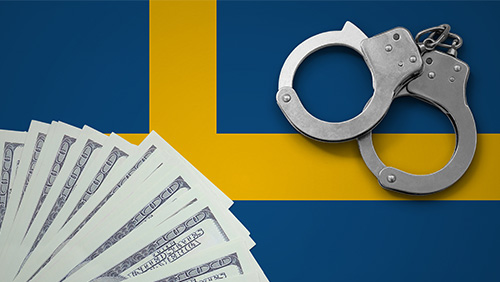Sweden’s gambling regulator, Spelinspektionen, isn’t going to rest until the industry trash is completely picked up and properly discarded. After the country updated its gambling laws earlier this year, the organization has continued to work to ensure that Sweden’s gambling operations are clean and legitimate, continuously holding gambling providers accountable for their actions. In its latest endeavor, Spelinspektionen has announced that it is joining forces with other agencies in the country to create a new strategy designed to combat money laundering and terrorism financing.
 Spelinspektionen stated this week that it will work with 15 other groups to develop the strategy, which will be deployed across the gambling industry, as well as others. It will include the distribution and exchange of information between the different entities involved and will lead to the creation of a repository of data that can be used to identify, map and analyze risks tied to illicit activities.
Spelinspektionen stated this week that it will work with 15 other groups to develop the strategy, which will be deployed across the gambling industry, as well as others. It will include the distribution and exchange of information between the different entities involved and will lead to the creation of a repository of data that can be used to identify, map and analyze risks tied to illicit activities.
The gambling regulator adds in its announcement, “Spelinspektionen will work to counter money laundering and financing of terrorism in the gaming sector. A gaming company could be used as a criminal tool. Therefore, in our licensing, it is important to find out who are the real principals of the gaming company that holds or applies for a license. A gaming company must also have good customer knowledge in order to counteract the use of gambling activities for money laundering or terrorist financing.”
Part of these efforts will be digging deep into the background of applicants soliciting a gambling license. The goal of that investigation is to uncover the identity of the person or persons requesting the license, not just provide a cursory review of the operator’s business name. Those companies approved for licenses will also be forced to include Know Your Customer procedures, which are often used to try to thwart illegal money exchanges and other illicit activity in money-related industries.
The efforts in Sweden are similar to those recently introduced in Denmark. That country’s gambling regulator, Spillemyndigheden, introduced policies to combat money laundering in the Danish gambling industry, including a whistleblower program that rewards local employees in the gambling industry to report questionable activity.